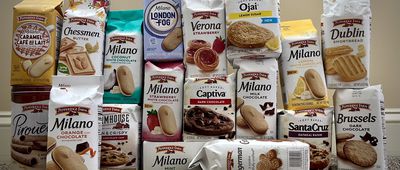Best Cheap Humidifiers
A cheap humidifier is a simple solution to the problems caused by dry air. If you suffer from irritants like dry skin, chapped lips, itchy eyes, or nosebleeds, and/or the house is showing telltale signs like static electricity or cracks in wood beams or furniture, you probably need a humidifier. Careful research based on expert and user reviews pointed us to commendable room humidifiers costing less than $60.
Our Top Pick


TaoTronics AH001 Review
Pros:
- 1.1-gallon tank lasts up to 15 hours on low.
- Produces enough moisture to humidify 66 to 82 square feet.
- Nozzle rotates 360 degrees.
- Ultrasonic technology runs almost silently.
- Easy-to-fill tank, with handles on top and bottom.
- Permanent filter.
- LED display, humidistat, 24-hour timer, auto shutoff, and sleep mode.
Cons:
- Some reports of malfunctions after short periods.
- Some reviews mention dripping and pooling water.
Takeaway: The feature-rich TaoTronics AH001 wins accolades from scores of users for its effectiveness and value. The humidity and mist levels can be adjusted with digital controls, and the filter never needs replacing -- just a monthly vinegar bath. This ultrasonic cool mist humidifier sits at the top of the Cheapism price range, but strong reviews and features not often found on budget models convince us it's a very good deal.

Vicks V745A Review
Pros:
- Slot for inhalants to help relieve congestion.
- Emits plenty of warm vapor for midsize or even large rooms.
- Heated water kills most germs, spores, and mold.
- Runs quietly, with soft bubbling.
- 1-gallon tank lasts up to 12 hours on low.
- Automatic shutoff.
- No filter to replace.
- Compact design.
- 3-year limited warranty.
Cons:
- Scattered reports of leaking.
- Small fill opening makes cleaning difficult.
Takeaway: This Vicks humidifier is a popular model among consumers with a preference for warm mist and a filter-free design. Many take advantage of the medicine cup to add inhalants when feeling under the weather, and are grateful for the relief. They also appreciate the bargain price. A newer model, the V750 (starting at $30), runs up to 24 hours on a 1-gallon tank and features a small compartment for Vicks VapoPads and a larger fill opening for easier cleaning.

Honeywell HUL520B Review
Pros:
- Humidifies small spaces effectively.
- Half-gallon tank lasts up to 18 hours on low.
- Automatic shutoff when the tank is empty.
- Very quiet ultrasonic technology.
- Easy to fill and clean.
- No filter to replace.
- Small, compact design.
- Available in white, blue, red, and black.
- 2-year limited warranty.
Cons:
- Some reports of limited longevity.
- Some mention of leaks in online reviews.
Takeaway: The ultrasonic Honeywell HUL520B emits enough cool mist for small rooms or a user's personal space. Reviewers say it benefits from weekly cleaning with vinegar or bleach, while distilled water or demineralization cartridges help minimize white dust. They like the ease of use -- especially the absence of a filter -- and consider this personal humidifier essential for easy breathing.

Vicks V4600 Review
Pros:
- Compartment for Vicks VapoPads to alleviate cold and flu symptoms.
- Cool mist quickly fills midsize rooms.
- 1.2-gallon tank lasts up to 30 hours on low.
- Near silent when running.
- Comes with a demineralization cartridge.
- Easy to clean.
- No filter to replace.
- 3-year limited warranty.
Cons:
- Some reviewers warn of limited longevity.
- Some complaints about leaks.
Takeaway: Fans of Vicks products get a twofer with the V4600: an ultrasonic Vicks humidifier with the option of adding up to two proprietary pads that release scented vapors along with cool mist. Reviewers report relief from nosebleeds, congestion, and allergy symptoms (for pets, as well), and talk up the savings of the no-filter design.

Crane Drop Review
Pros:
- Sleek teardrop design available in more than a dozen colors.
- Ultra-fine, cool mist spreads through midsize or even large rooms.
- 1-gallon tank lasts up to 24 hours on the lowest setting.
- Super-quiet while running.
- Antimicrobial material in base.
- Lid with a nozzle at the tip rotates 360 degrees.
- Automatic shutoff when the tank is empty.
Cons:
- Some griping that the midsection of the tank is hard to clean.
- Some reported problems with mold and need for daily cleaning.
Takeaway: This Crane humidifier is a good choice for anyone who cares about aesthetics almost as much as alleviating dry air. Reviewers are generally pleased with the performance and features of this ultrasonic, cool-mist model but withhold points for cleaning struggles.

Honeywell HWM705B Review
Pros:
- Warm mist suffuses well in small to midsize rooms.
- 1-gallon tank lasts up to 24 hours on low.
- Easy to clean.
- No filter to replace.
- Automatic shutoff when the tank is empty.
- Medicine cup for liquid inhalants.
- 2-year limited warranty.
Cons:
- Some users consider this model a bit noisy, according to online reviews.
- Some reports of disappointing durability.
Takeaway: Experts at Wirecutter aren't sold on the Honeywell HWM705B, saying it seems a bit flimsy, but dozens of user reviewers like this warm mist humidifier just fine. It's a basic, no-frills model with no filter to mess with. The price is very attractive and the two moisture settings meet the needs of a majority. In short, it serves the purpose.

Vicks V3900 Review
Pros:
- 1-gallon tank runs up to 24 hours on low.
- Ultraviolet light kills most germs in water.
- Energy-efficient evaporative technology.
- Easy to clean and fill.
- Can be used with Vicks VapoPads.
- 3-year limited warranty.
Cons:
- Wicking filter dries quickly.
- Vents direct mist toward the floor.
- Some users grouse about noise.
- Moisture output is weak, according to some reviews.
Takeaway: This cool mist model boasts supporters who say it does the job and never oversaturates the air, but it's also cited for inadequate mist production. Like most evaporative humidifiers, the Vicks V3900 requires frequent filter changes. Some consider the chore a hassle, while others are more irked by the tendency of the filter to dry out overnight. With so many other inexpensive humidifiers on the market, including some with evaporative technology that don't cause users as much grief, shoppers might want to look elsewhere.



















